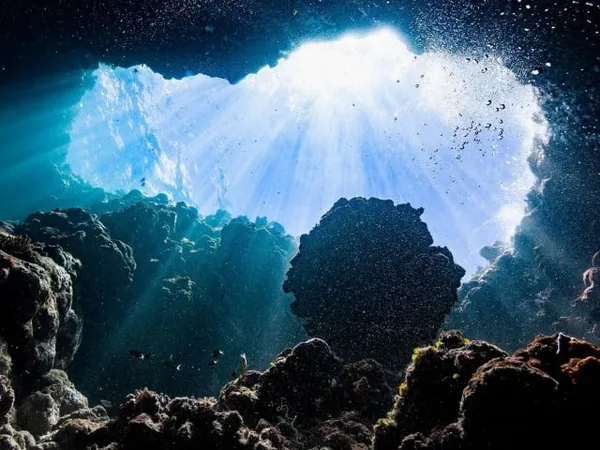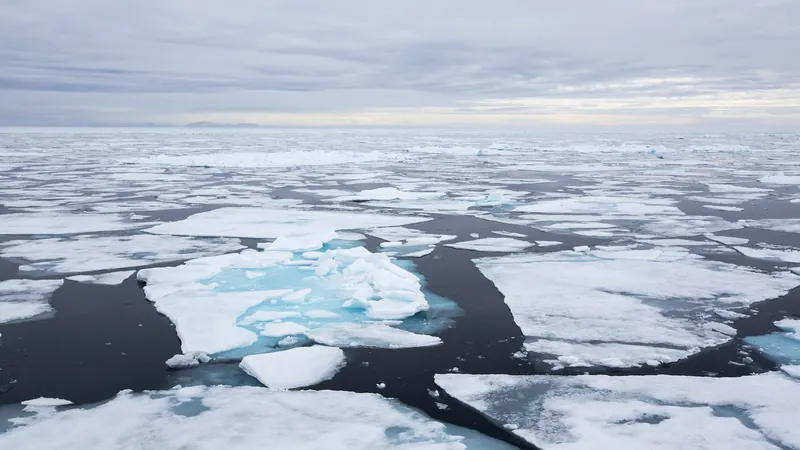
Discovery of 'Dark Oxygen' 4,000 Meters Under the Ocean Shakes Up Our Understanding of Life
2025-04-14
Author: Ming
Unveiling the Mystery of Dark Oxygen
In a remarkable breakthrough, scientists have stumbled upon a phenomenon dubbed "dark oxygen" — a form of oxygen generated deep underwater, specifically 4,000 meters beneath the surface in the enigmatic Clarion-Clipperton Zone (CCZ) of the Pacific Ocean.
A Treasured Yet Treacherous Realm
This expansive region, located between Hawaii and Mexico, remains one of Earth's least explored frontiers. It's renowned for its polymetallic nodules — mineral-rich rocks that appear to play a pivotal role in this astonishing process.
Revolutionizing Our Understanding of Oxygen Production
Historically, it's been understood that nearly all of Earth's oxygen is produced through photosynthesis — the method by which plants and microorganisms convert sunlight into energy. However, recent findings suggest these deep-sea nodules might function as natural "geobatteries," effortlessly generating small electrical currents (around 0.95 volts). This energy seems capable of splitting seawater molecules into hydrogen and oxygen, entirely independent of sunlight.
Implications That Could Rewrite History
The potential ramifications of this discovery are nothing short of monumental. It raises the possibility that aerobic life — organisms relying on oxygen — could have thrived in Earth's ancient oceans long before photosynthesis emerged, potentially rewriting the narrative of early life on our planet.
A Glimmer of Hope for Extraterrestrial Life
Furthermore, the mechanisms behind this dark oxygen generation could occur on other planets as well, igniting exciting new avenues in the search for extraterrestrial life.
Environmental Concerns in the Face of Opportunity
As the Clarion-Clipperton Zone faces increasing scrutiny due to proposed deep-sea mining endeavors, the urgency of this discovery intensifies. Companies are eager to extract vital metals like nickel and cobalt, crucial for battery production and green technologies.
Protecting Our Ocean's Secrets
However, this newfound knowledge breeds additional alarm: disrupting these geobatteries could have unforeseeable repercussions for deep-sea ecosystems and Earth's chemical cycles. Scientists are advocating for stronger protections for the CCZ and similar underwater environments, cautioning against hastily depleting our planet's resources before fully grasping their crucial functions.
A Deep Dive into Earth's Ongoing Mysteries
This discovery serves as a powerful reminder that Earth's mysteries are alive and thriving, lurking within the ocean's shadowy depths. The quest for knowledge about our planet continues — and who knows what else lies hidden below?

 Brasil (PT)
Brasil (PT)
 Canada (EN)
Canada (EN)
 Chile (ES)
Chile (ES)
 Česko (CS)
Česko (CS)
 대한민국 (KO)
대한민국 (KO)
 España (ES)
España (ES)
 France (FR)
France (FR)
 Hong Kong (EN)
Hong Kong (EN)
 Italia (IT)
Italia (IT)
 日本 (JA)
日本 (JA)
 Magyarország (HU)
Magyarország (HU)
 Norge (NO)
Norge (NO)
 Polska (PL)
Polska (PL)
 Schweiz (DE)
Schweiz (DE)
 Singapore (EN)
Singapore (EN)
 Sverige (SV)
Sverige (SV)
 Suomi (FI)
Suomi (FI)
 Türkiye (TR)
Türkiye (TR)
 الإمارات العربية المتحدة (AR)
الإمارات العربية المتحدة (AR)